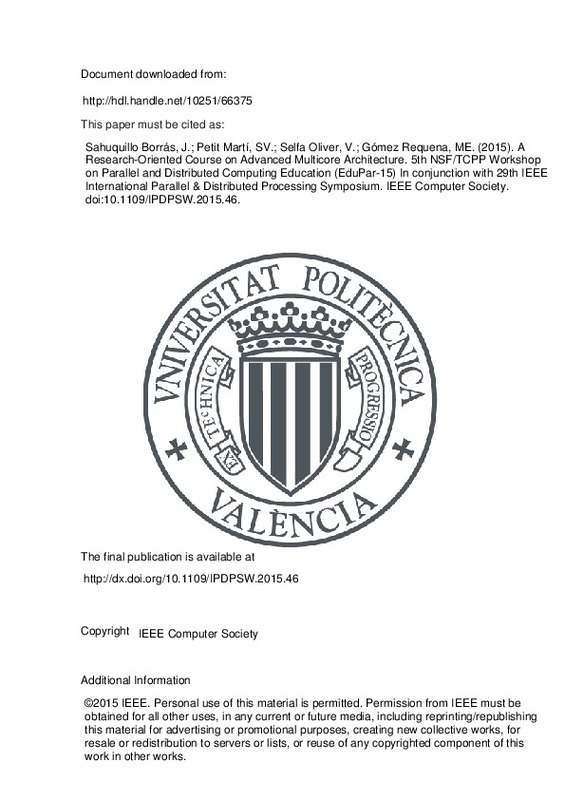JavaScript is disabled for your browser. Some features of this site may not work without it.
Buscar en RiuNet
Listar
Mi cuenta
Estadísticas
Ayuda RiuNet
Admin. UPV
A Research-Oriented Course on Advanced Multicore Architecture
Mostrar el registro completo del ítem
Sahuquillo Borrás, J.; Petit Martí, SV.; Selfa Oliver, V.; Gómez Requena, ME. (2015). A Research-Oriented Course on Advanced Multicore Architecture. IEEE Computer Society. https://doi.org/10.1109/IPDPSW.2015.46
Por favor, use este identificador para citar o enlazar este ítem: http://hdl.handle.net/10251/66375
Ficheros en el ítem
Metadatos del ítem
| Título: | A Research-Oriented Course on Advanced Multicore Architecture | |
| Autor: | Selfa Oliver, Vicent | |
| Entidad UPV: |
|
|
| Fecha difusión: |
|
|
| Resumen: |
Multicore processors have become ubiquitous in our real life in devices like smartphones, tablets, etc. In fact, they are present in almost all segments of the computing market, from supercomputers to embedded devices. The ...[+]
|
|
| Palabras clave: |
|
|
| Derechos de uso: | Reserva de todos los derechos | |
| ISBN: |
|
|
| DOI: |
|
|
| Editorial: |
|
|
| Versión del editor: | http://dx.doi.org/10.1109/IPDPSW.2015.46 | |
| Título del congreso: |
|
|
| Lugar del congreso: |
|
|
| Fecha congreso: |
|
|
| Código del Proyecto: |
|
|
| Descripción: |
|
|
| Agradecimientos: |
|
|
| Tipo: |
|







![[Cerrado]](/themes/UPV/images/candado.png)


